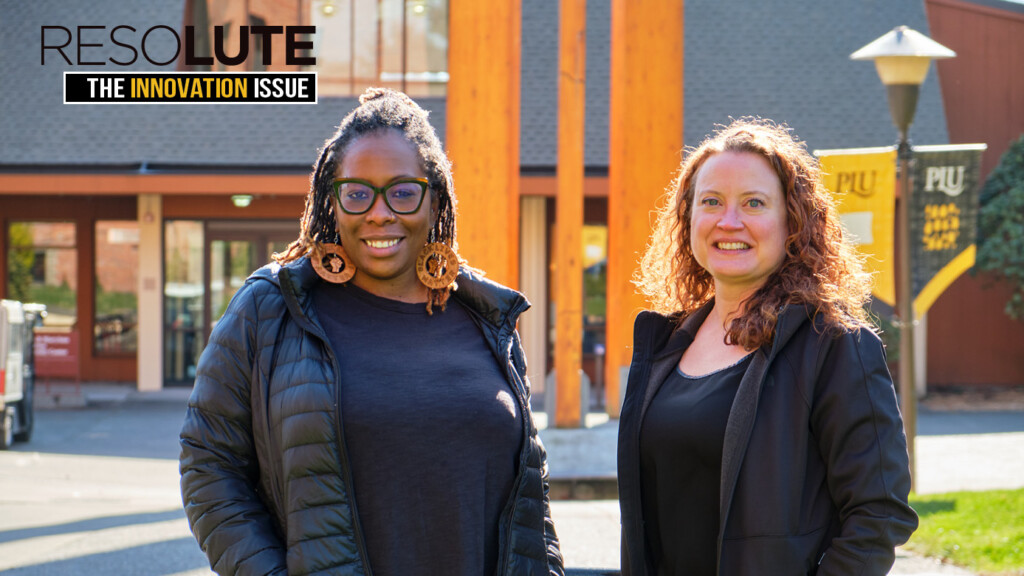Page 12 • (131 results in 0.138 seconds)
-
era of globalization. Topics include technological change, business organization, business ethics, and the place of women and minorities in American business society. HIST 248: Innovation, Ethics, and Society- A gateway course that explores the history of innovation, problem solving, and creativity in the global economy, emphasizing design thinking and ethical issues in innovation. (Only available for Elective credit if you took HIST 121 or HIST 346 to fulfill the Introduction to Innovation
-

political season marked by the demonization of racial, religious, and ethnic minorities, this conference focuses on the quest for a just vision of life shared in community. Sponsored by the Department of Religion and Lutheran Studies program. MORE INFORMATION Ruth Anderson Public Debate: A Third-Party Vote is a Wasted Vote Oct. 4 | 7 p.m. | Karen Hille Phillips Center for the Performing Arts The 4th annual Ruth Anderson Public Debate will feature PLU debaters Mariah Collier ‘17 and Charles “Tate” Adams
-

our assumptions. Can we call the work of equity at PLU — or anywhere — “innovative?” And what does innovation even mean in this context? As a white woman who works with other white people to increase racial literacy — and as a ‘21 graduate of the Rainier Writing Workshop, PLU’s Master of Fine Arts in creative writing program — I’m interested in the semantics of social justice and the idea of challenging default definitions and linguistic habit. A couple of months ago, via Zoom, I met with four
-
attention when obtaining informed consent. In all cases, the guiding principle is respect for the rights of the potential participant. Federal regulations consider children, prisoners, the mentally disabled, and pregnant women to be “special populations,” and as such, are entitled to extra protection under the law. Vulnerable Populations Other groups, such as racial minorities, the elderly, substance abusers, the economically disadvantaged, the very sick, and the institutionalized are described as
-
they know as a result of this learning. This course explores first language acquisition and development; including, phonology, syntax, morphology, pragmatics, and semantics. These concepts are examined in relation to standard language ideologies and supporting linguistic justice. (2) EDUC 491 : Independent Study To provide individual undergraduate students with advanced study not available in the regular curriculum. The title will be listed on the student term-based record as IS: followed by the
-
an ethos more favorable to animals, more open to the creature as a living presence. That means more multi-disciplinary study to help us overcome the limitations of perspective in our individual disciplines. It also means more conferences, more panels, more publications, and more courses in universities. I would urge anyone interested in animal issues to read widely (and wildly?) about animals, ranging beyond the confines of particular disciplines. It’s harder to treat a whale as only a linguistic
-
program encourages candidates to explore their vocation as teachers and to work for meaningful social change by recognizing the perspectives of the students and families in the communities they serve; by providing opportunities for powerful and authentic learning grounded in the lived experiences of their students; by facilitating candidate inquiry into the formulation of critical educational questions; by honoring the vast array of cultural and linguistic resources in schools, classrooms and
-
Institute and State University. After finishing my contract for this job, I moved to China as a volunteer teacher with Pearl S. Buck International. I then extended my stay in China via an internship with the cultural division at UNESCO, Beijing. In late December of 2005, I returned to the US for a brief visit, and this returned to China as a visiting researcher at Sun Yat-sen (Zhongshan) University–working on social impact assessment and ethnic minorities development initiatives with the University’s
-
PLU 500th anniversary of the Reformation eventsReflect on PLU’s celebration of the 500th anniversary of the Reformation. September 2016Free at Last? Lutheran Perspectives on Racial Justice Free at Last? Lutheran Perspectives on Racial Justice In a political season marked by the demonization of ethnic, racial and religious minorities, the sixth annual Lutheran Studies Conference on Thursday, Sept. 29, will bring together scholars, musicians, students and college leaders who will share their
-
something for every student in healthcare. Center for Health Equity, Diversity, and Inclusion (CEDI)- CEDI promotes diversity and inclusiveness throughout the School of Medicine including the WWAMI region. Chicanos/Latinos for Community Medicine (CCM)- A pre-health Registered Student Organization striving to increase the number of under-represented minorities in healthcare. Health Sciences Center Minority Students Program (HSCMSP)- Supports underrepresented minority and disadvantaged students interested
Do you have any feedback for us? If so, feel free to use our Feedback Form.


